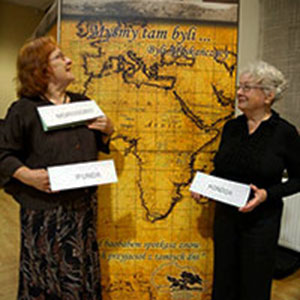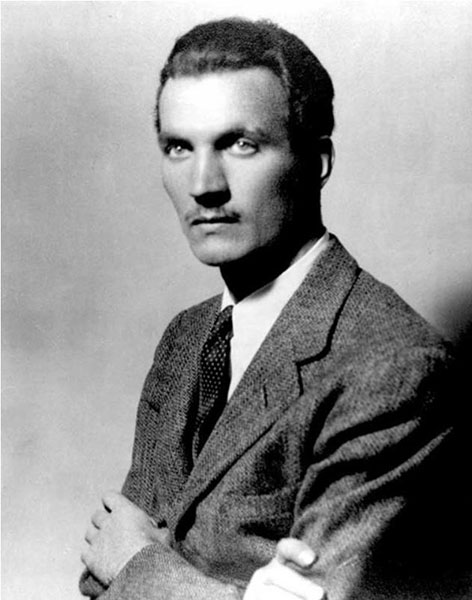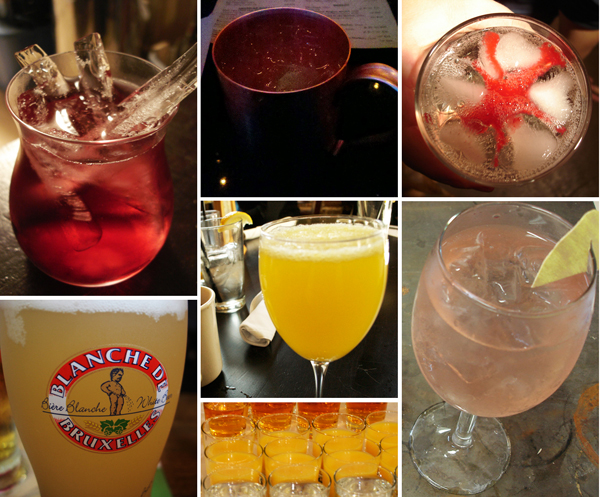 I’m from Chicago, a city said to have the second largest number of Poles in the world, right behind Poland’s capital, Warsaw. Whether that’s true or not is debatable, but there are certainly a lot of us in Chicago, and a lot of Polish things: Polish language schools, organizations, museums, stores, events, monuments and street names.
I’m from Chicago, a city said to have the second largest number of Poles in the world, right behind Poland’s capital, Warsaw. Whether that’s true or not is debatable, but there are certainly a lot of us in Chicago, and a lot of Polish things: Polish language schools, organizations, museums, stores, events, monuments and street names.
DC, where I’ve lived for about a year, is different. The Polish presence isn’t knit into the city’s fabric like in Chicago. But a Polish-American community does exist, and one of the ways it gathers is during a monthly happy hour, called – simply and to the point – Polish Happy Hour. The event is usually held on the second Friday of each month. Established about four years ago, the event draws a wide swathe of people, from those recently arrived from Poland to others with no connection to Poland beyond curiosity.
I attend the November happy hour as a newbie, curious to see why it’s important for those who attend to connect with each other. When I walk in, I get an immediate hug from one of the organizers, Agnieszka Miarka. She’s studying event management at George Washington University and is the driving force behind tonight’s event, being held at RiRa Irish Pub in Arlington, Virginia.
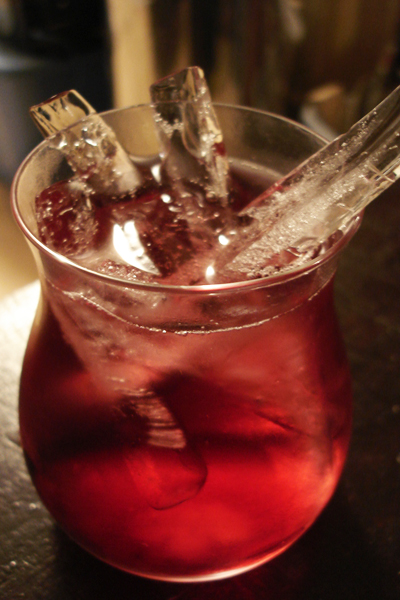 The venues differ month by month and sometimes repeat, but all the events are informal – no speeches or announcements. Many people seem to know each other already, but some, like me, are attending for the first time.
The venues differ month by month and sometimes repeat, but all the events are informal – no speeches or announcements. Many people seem to know each other already, but some, like me, are attending for the first time.
I chat with a range of attendees, asking them all the same questions: What brings you here? What’s your connection to Poland? Why is it important for you to connect with the people here? And what’s your beverage of choice?
The date of the November happy hour coincides with two holidays: Polish Independence Day, established in 1918 to celebrate Poland’s sovereignty following 123 years of partition, as well as U.S. Veterans Day. It’s thus fitting that some of the first attendees I chat with are both Polish, and work for the U.S. military.
Basia, 28, is from Tarnow, Poland. She’s been in DC for five months and this is her first Polish Happy Hour. She’s an Iraq vet and was stationed in Baghdad for a year in 2009. She was in the Green Zone, and treated combat injuries as a physical therapist. She’s also been stationed in Germany and lived in Texas.
 “Everywhere I go I find a Polish connection,” she says. I ask why that’s important, and she says that without it, she feels like something’s missing. Speaking the Polish language is also important to her. I ask if today’s Polish Independence Day has meaning for her, and she says it does – recalling the way she celebrated it in Poland in grammar school, with songs and poems.
“Everywhere I go I find a Polish connection,” she says. I ask why that’s important, and she says that without it, she feels like something’s missing. Speaking the Polish language is also important to her. I ask if today’s Polish Independence Day has meaning for her, and she says it does – recalling the way she celebrated it in Poland in grammar school, with songs and poems.
Her sister Gosia, 29, is also in the U.S. military and works as a nurse. She’s been in DC for a year and a half, and has attended other Polish Happy Hours. For her, Polish Independence Day means freedom, and that includes the freedom to celebrate our heritage. She’s drinking a Hefe-Weisse, while her sister nurses a Diet Coke.
Gosia came to the U.S. 16 years ago, and says it’s nice for people of the same heritage to get together. This is commented with a hearty “Tak,” from Steve, 34, who works as a communications specialist for the Army and is sipping a Riesling.
 Steve is American, with a Polish dad. His family is from Dupont, Pennsylvania, a county which once had the largest percentage of Poles in the U.S. Both his parents’ families were in coal-mining. His mom’s Italian, but “I was always drawn more to my Polish side,” he says.
Steve is American, with a Polish dad. His family is from Dupont, Pennsylvania, a county which once had the largest percentage of Poles in the U.S. Both his parents’ families were in coal-mining. His mom’s Italian, but “I was always drawn more to my Polish side,” he says.
He doesn’t speak Polish but loves the language and is taking classes. While stationed in Germany for 4 years, he traveled to Poland on a genealogical mission to located his grandfather’s birthplace – unsuccessfully. The town name no longer exists or was changed, and it’s possibly located in Belarus now, or Ukraine, he says. He tells an anecdote about visiting Krakow: “I went by myself, and sat down in the square.” An elderly woman started chatting with him – “the people are so friendly” – he says, and was astonished to hear that he didn’t know much about Polish history. So, she proceeded to instruct him.
Ruth, 35, is Mexican-American. This is her fourth Polish Happy Hour, her beverage of choice is a Hoeegarden, and she always learns something new when she attends. “These are very interesting people,” she says, “very intelligent,” with interesting careers. She used to date a Polish man, and visited Poland with him in 2000. She loved it, but it was extremely cold (she was there in January).
 When Max, 36, comes in, he’s greeted with cries of, “The photographer’s here!” He carries a small silver camera, and documents away the evening – including, at one point, a tiny mouse that is running underneath one of the tables. “There’s mice in Poland too,” he says cheerfully. When I ask what he’s drinking, he says that it’s a Heineken – only because the bar doesn’t stock Polish beers.
When Max, 36, comes in, he’s greeted with cries of, “The photographer’s here!” He carries a small silver camera, and documents away the evening – including, at one point, a tiny mouse that is running underneath one of the tables. “There’s mice in Poland too,” he says cheerfully. When I ask what he’s drinking, he says that it’s a Heineken – only because the bar doesn’t stock Polish beers.
Max is a police officer and a Marine. His parents were born in Poland, and he’s traveled there extensively throughout his life. He’s been a PHH regular for about a year, and comes because it connects him to his roots.
“I like the whole atmosphere of being Polish,” he says. He especially appreciates the importance of family in Poland, and says that when he has his own in the future, he’d like his children to speak Polish.
We chat about how much Poland has changed since communist times, and how it’s blossomed since 1989. We also talk about the notion of freedom, and what it means. Max says that an important part of freedom is the ability to express oneself.
That notion is especially meaningful for him, because Max’s father is John Wojnowski, an activist who has held a one-man protest outside the Vatican’s diplomatic mission in Washington, DC, since 1998. He protests against pedophilia in the Catholic Church: as a teenager, he was sexually molested by a priest in Italy.
I ask Max if it’s OK that I share that his dad is who he is, and he says yes. “I’m proud of my dad,” he tells me. “I’m proud of what he does.”
I know exactly who his dad is, because a fellow journalism student wrote about him during our mutual DC quarter last spring. I remember the story well, and think about what a small world has had me now meet his son through a Polish Happy Hour. Max is definitely one of the more popular attendees of the evening; while we chat, people constantly come up to him: “Pamietasz mnie?” (Remember me?) and ask about other events, reminisce about parties.
 The Happy Hours were started by Marcin Zmudzki and Agnieszka Miarka in 2007. They worked for the same company, and wanted to start an informal social group for other people of Polish descent in that company. The first meeting was in Starbucks, and has since then expanded to a regularly scheduled happy hour.
The Happy Hours were started by Marcin Zmudzki and Agnieszka Miarka in 2007. They worked for the same company, and wanted to start an informal social group for other people of Polish descent in that company. The first meeting was in Starbucks, and has since then expanded to a regularly scheduled happy hour.
Agnieszka, 33, whose drink of choice is an IPA, came to the U.S. in 1999 and is from Radomsko, near Czestochowa. She wanted to connect with other Polish-Americans because she missed “the culture, the chats, exchange of recipes, gossip and the humor.” She also noticed that since she only spoke Polish with her parents, her language skills were slipping: “I forgot words and mixed a lot of English with Polish.” When she begin meeting with other Polish-language speakers regularly through the events, her Polish got much better – and she made close friends. “We help each other, cry on each other’s shoulders, and we always bring goods from home for each other,” she says. “We know who is going to Poland, and so the first question is, ‘What would you like me to bring?’”
Marcin, 48, says that attendance has grown throughout the years and now holds steady at around 40-60 participants per event.
“Some people are regulars,” he says, “but every time there’s someone new. I get a kick out of seeing people who are here for the first time.” He says it’s especially great to see people who haven’t had any connection to Poland since coming to DC to meet each other – especially since many of them don’t belong to any other Polish groups.
As he sips hot tea with lemon, Marcin and I chat about the happy hour and its purposes – “it’s a social event without speeches but it helps to coalesce a community that is dispersed,” he says. He likens the events to formal celebrations, like Wigilia (Christmas Eve). “It’s not just about the holiday, but about being together,” he says.
He underlines that one of the important aspects of the PHH is its multi-ethnicity, especially in the sense of multi-ethnic couples. That’s even included in the emails sent out about the happy hours: “Yes, bring your non-Polish speaking significant others. We will talk to them.”
He says the PHH has a community building aspect to it, especially through its link to the Polish Global Village, a mailing list he started a decade ago. PGV is a virtual community with members that communicate electronically with each other about numerous Polish-related events and activities.
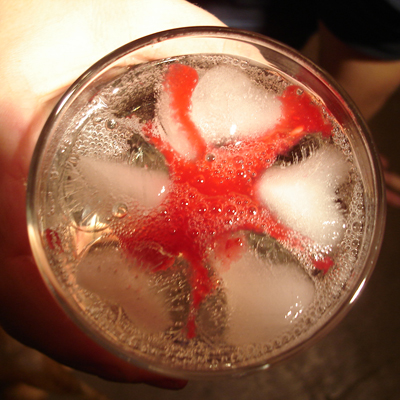 Marcin and I also talk about activism and Polish-American organizations and how our community continues to evolve, especially since 1989 onward. Like everyone I’ve met throughout the evening, Marcin has his own fascinating stories to tell – including about how he helped created clandestine libraries in Warsaw during the communist era, and continued his pro-democracy work when he came to the U.S. in June 1981 when he was almost 18.
Marcin and I also talk about activism and Polish-American organizations and how our community continues to evolve, especially since 1989 onward. Like everyone I’ve met throughout the evening, Marcin has his own fascinating stories to tell – including about how he helped created clandestine libraries in Warsaw during the communist era, and continued his pro-democracy work when he came to the U.S. in June 1981 when he was almost 18.
Marcin is part of the glue that has kept the PHHs going, but he’s quick to point out that it’s a group effort. “I’m Charlie,” he says, “and these are my three angels.”
In addition to Agnieszka and Marcin, the group of organizers includes Ania Buczkowska and Kamila Lipowska.
Kamila is the newest member of the team. She’s been in the States for almost nine years, and is from Szczytno in northeast Poland. “Keeping my Polish roots and heritage is extremely important to me,” she says. “I’m very proud to be Polish and believe in community work that helps cultivate history, tradition and culture. In an era of globalization keeping roots is much more difficult and our little Polish community in the area makes it easier and much more realistic.” She’s been part of PGVHH for more than two years, and became one of the organizers last summer. Her drink of choice is a Purple Haze – though she’d prefer a Polish beer if it were available.
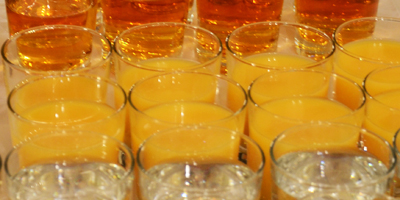 Ania joined the organizing team in the fall of 2007. She came to the States from Poznan eight years ago, on her own. “I didn’t know anyone,” she tells me in an email, “so I started looking for Polish events, and Polish folks. I’ve met many friends, who became my family here.” She believes the group connects and supports Polish people, and cherishes Polish culture and traditions. “I think it’s important to keep letting people know about it.”
Ania joined the organizing team in the fall of 2007. She came to the States from Poznan eight years ago, on her own. “I didn’t know anyone,” she tells me in an email, “so I started looking for Polish events, and Polish folks. I’ve met many friends, who became my family here.” She believes the group connects and supports Polish people, and cherishes Polish culture and traditions. “I think it’s important to keep letting people know about it.”
People come and go throughout the evening. When it’s my turn to go after two Lagunitas IPA, I get hugs and three-cheek kisses, Polish style, from people I’d just met for the first time a few hours ago. The very next day, I receive Facebook friend requests from a number of them, and I join the Polish Happy Hour’s Facebook site.
Until next time, Polish Happy Hour in DC! Thanks for hosting me.
All drink photos my own.
* * *
